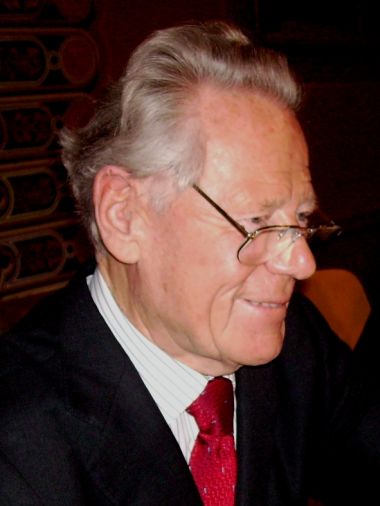Infallibility: Why a key Catholic doctrine is back on the table

Pope Francis has acquired a reputation for ruffling Roman Catholic feathers with his willingness to talk about things that used to be regarded as settled. He's faced considerable opposition from conservatives for doing so; many wonder whether the question "Is the Pope Catholic?" is a rhetorical one any longer.
In his latest venture, however, he may be pushing even harder at the boundaries of acceptability.
The Swiss Catholic theologian Hans Kung, 88, was deprived of his licence to teach Catholic theology in 1980, though he remains a priest and a professor at Tubingen University. The censure was in good part because of his book Infallible? which critiqued the idea of papal infallibility and found it wanting.
To mark the book's fifth edition, he appealed to Pope Francis to allow an "open and impartial discussion on infallibility of Pope and bishops". According to Kung, and much to his surprise, the Pope sent a personal reply in which he agreed.
While he did not reveal the Pope's letter in full, he issued a statement to the Tablet and the National Catholic Reporter giving the gist of it. Kung said: "Pope Francis has set no restrictions. He has thus responded to my request to give room to a free discussion on the dogma of infallibility."
Kung says that Francis "no longer wants to be the sole spokesman of the Church" and concludes: "I am fully convinced that in this new spirit a free, impartial and open-ended discussion of the infallibility dogma, this fateful key question of destiny for the Catholic Church, will be possible."
Francis' response to Kung may just mean that he is anxious to assure Catholic teachers that they can talk about things without the threat of heavy-handed action hanging over them. It is deeply improbable that he wants to tear up a doctrine that has become embedded in Catholic teaching, but he may want to open a discussion about reinterpreting it to become less oppressive and less contentious.
Without a copy of Francis' letter it's difficult to know exactly what the Pope has in mind – though his tendency to go off-piste has alarmed his staff before.
The doctrine of papal infallibility has always been a sticking-point with Protestant, Orthodox and other Churches and is one of the most serious barriers to reconciliation or reunion between them.
It has two aspects. One is the personal infallibility of the Pope when speaking ex cathedra, "from the chair" of St Peter. This doctrine is based on the promise of Jesus to Peter that "on this rock I will build my Church", held to imply that the Pope would be preserved from the possibility of error. It was declared only in 1870, by the First Vatican Council. Since then there has only been one such decree, when Pope Pius XII declared the Assumption of the Virgin Mary into heaven, body and soul, as Catholic doctrine. Protestants and Orthodox protested; there was absolutely no scriptural warrant for it, they said. A later Pope, John XXIII, told students: "I am only infallible when I speak ex cathedra, but that is something I will never do."
But in Catholic teaching, the Pope isn't the only channel of infallibility. The Church is infallible too. Its Sacred Magisterium – the teachings of the ecumenical councils of the early Church and the sacred traditions of the Catholic Church since then – are ways in which God's truth is taught authoritatively. At the Second Vatican Council in 1965 infallibility was extended to the episcopacy, too; the assembled bishops could agree that a particular teaching on faith or morals could become mandatory. In 1968 this was to be tested with the publication of Humanae Vitae, the Pope's encyclical that banned artificial birth control.
Protestants have always rejected the idea that the Pope or the bishops are infallible. If there is infallibility, it's located in Scripture alone. Patient scholarship and discipleship are needed to realise its meaning, but God has spoken authoritatively only in Scripture.
However, it's worth saying that Protestants do not reject the early Councils and creeds of the Church, regarding them as normative for Christians today.
And, of course, whether they realise it or not, Protestants have to believe in an authoritative early Church, since it was the Church that decided which books were to be in the authoritative Bible.











